'Talk to anyone over the age of 40 and they say, "I'm just invisible"' – Emma Thompson condemns ageism against women as new sex-positive film hits cinemas
Emma Thompson sat down with woman&home for a candid interview on sexism and ageism ahead of the release of her new movie, Good Luck to You, Leo Grande

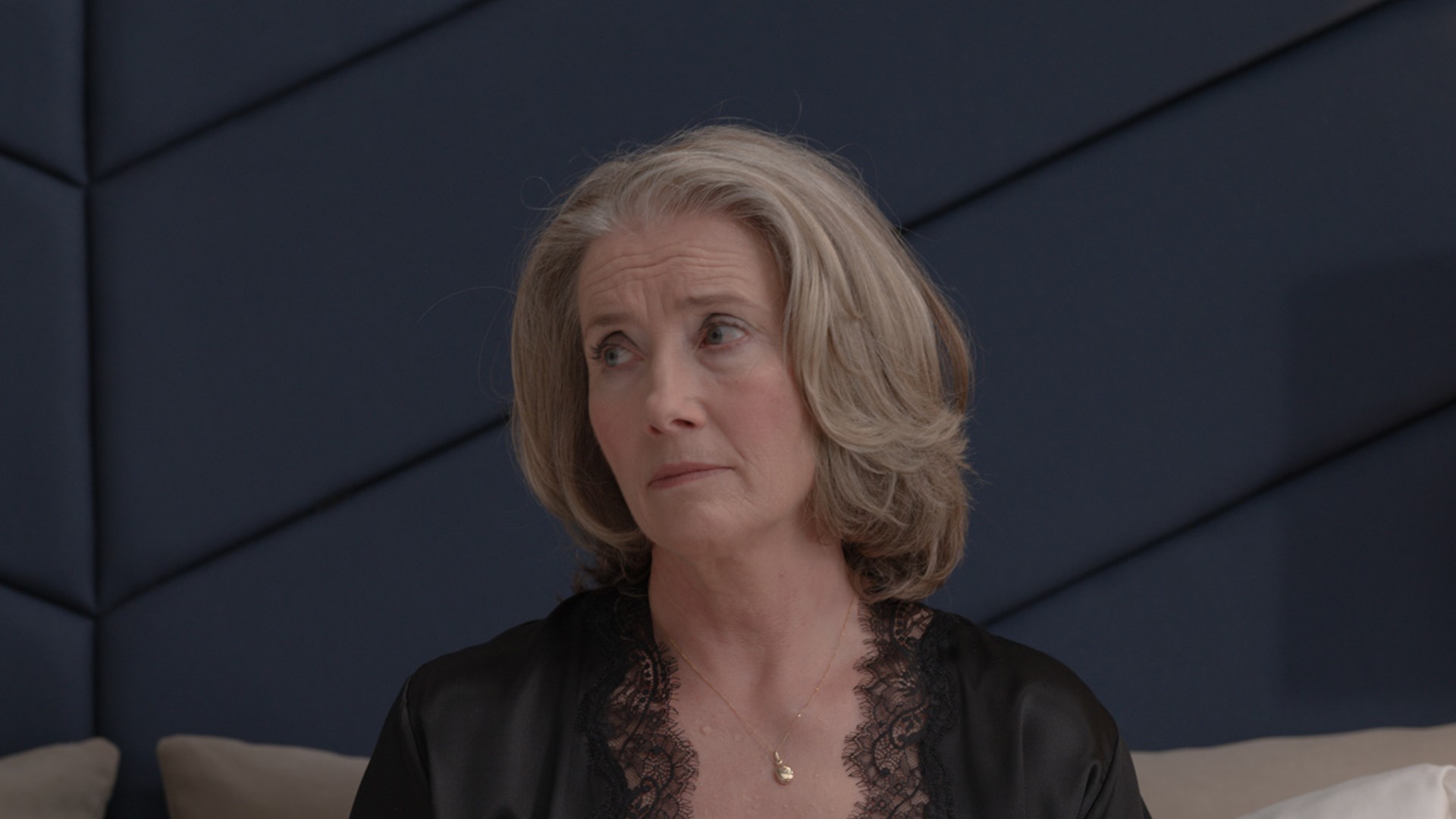
Woman&home sat down with Emma Thompson and Daryl McCormack ahead of the release of their new film, Good Luck to You, Leo Grande, for an exclusive interview on the British sex-positive drama's exploration of female pleasure, ageism against women, and evolving attitudes to sex work.
Good Luck to You, Leo Grande sees Emma Thompson take on one of her most ‘ordinary’ characters to date – a retired schoolteacher in her mid-50s with a disdain for short skirts, anal sex, and, somewhat ironically, her painfully boring adult son.
She has also just hired a sex worker and is determined to have an orgasm for the first time in her life.
Recently widowed after thirty years of dissatisfied intimacy, Nancy Stokes embarks on her mission in the city of London, where she begins an unlikely relationship with the charming Leo Grande (Daryl McCormack) inside the soundproof walls of a luxurious hotel suite. Young, sexually liberated, and comfortable in his own skin, the Irish ex-pat is everything she is not, and that’s exactly what makes their pairing, devised by writer Katy Brand and director Sophie Hyde, absolutely delicious to watch on-screen.
woman&home exclusive video interview with Emma Thompson and Daryl McCormack
As Nancy's sessions with Leo unfold over the duration of the 97-minute-long film, she finds herself navigating a relay race of insecurities that have fatigued her since adolescence – including an almost palpable aversion to her own reflection. When this body hatred ultimately prevents her from doing the very thing she came to do, she embarks on an unexpected journey to relearn what ‘good sex’ actually is – and all the non-physical ingredients needed to achieve it.
The result is a series of candid conversations between Nancy and Leo, who, protected by their anonymity, freely discuss everything from sexual shame and ageism against women to the legality of sex work and motherhood regret.
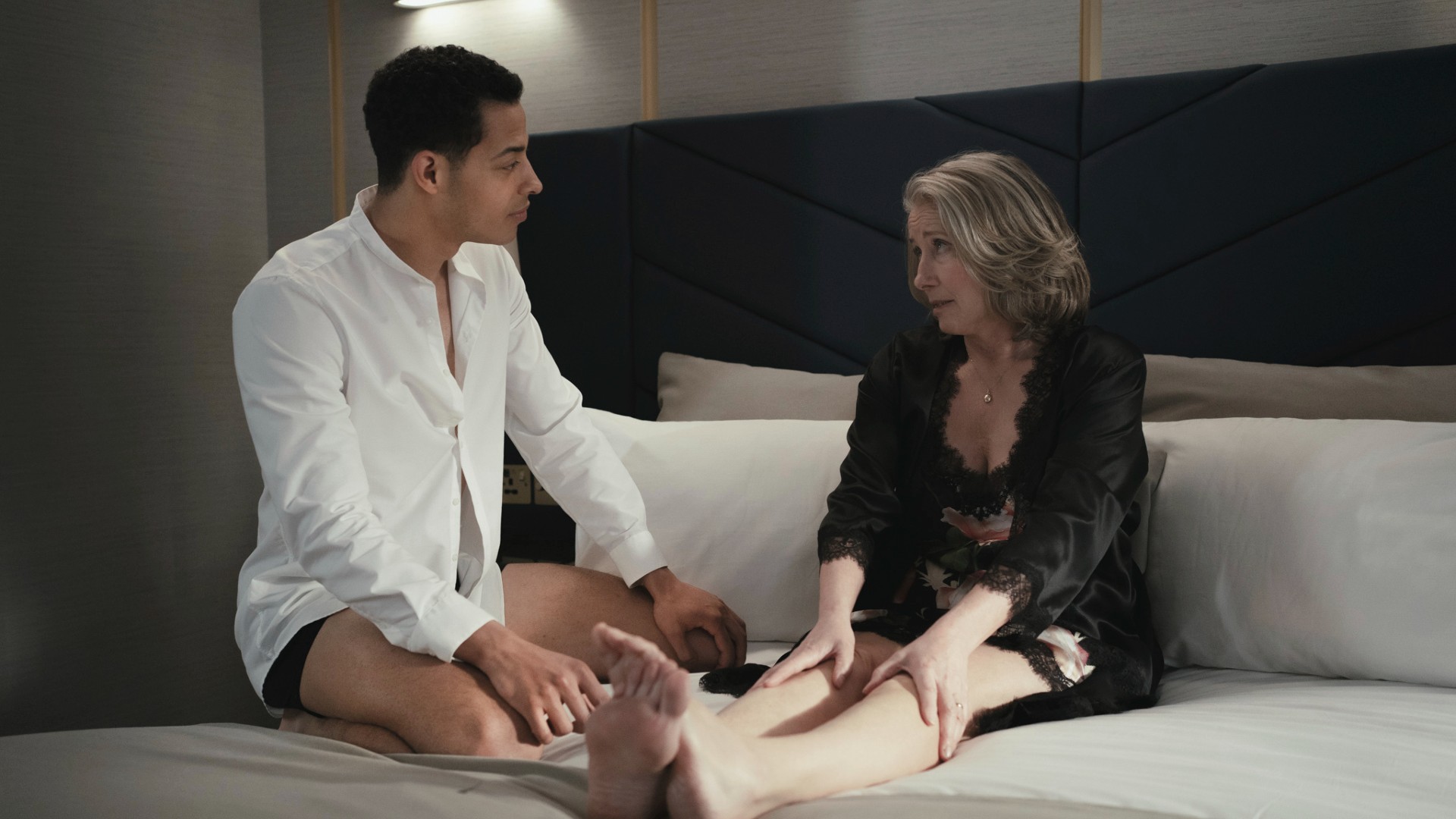
There’s also a steady dose of comical moments, with scenes of impromptu dancing, last-minute grooming, and refreshingly awkward foreplay peppered throughout the film to keep the mood nice and light.
Sign up to our free daily email for the latest royal and entertainment news, interesting opinion, expert advice on styling and beauty trends, and no-nonsense guides to the health and wellness questions you want answered.
Woman&home sat down with Emma Thompson and Daryl McCormack for an in-depth chat on the issues explored in Good Luck to You, Leo Grande – and why they think the film, which already has been met with rave reviews, has received such a positive reaction.
W&H: Why do you think there’s been such a visceral response to Good Luck to You, Leo Grande, even just from the trailer?
EMMA THOMPSON: Well, this never has been seen before. Nobody’s interested in women’s pleasure. Women exhibiting pleasure, performing pleasure, has been seen a lot. But that’s not about women’s pleasure, that’s about other things…men’s mostly.
We’ve never really examined it. It’s not in the mainstream discussion about anything, so there’s that. There’s the fact that older women become invisible – talk to anyone over the age of 40 and they say they say, “I’m just invisible. Literally, invisible.” Ageism, all of that. So yeah there’s an awful lot of stuff.
I don’t think that Katy Brand was intent on somehow tearing all the prejudice down and changing the world, but she wrote something that is groundbreaking, and this is a woman who wrote a great book about Dirty Dancing which was groundbreaking about abortion, and lo and behold, she’s written a script that is quite revolutionary, about pleasure, about intimacy, about consent, for heaven’s sake.
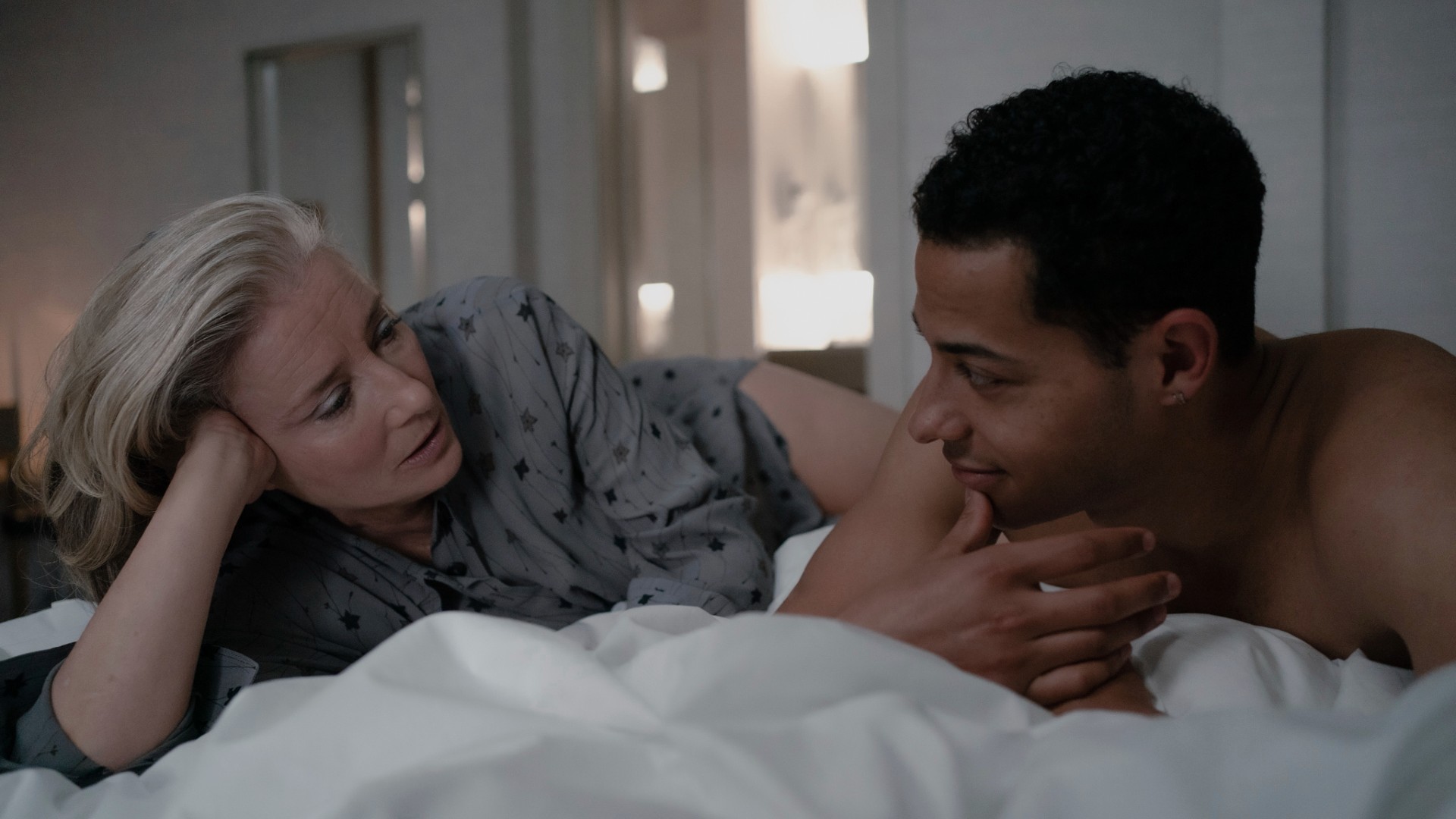
DARYL MCCORMACK: I think there has been a depravity of intimacy, especially going through two years of Covid. When there’s an absence of something, people examine what has been taken, what has been removed, so I think there’s an element of people having moments to themselves to have more space to think about these things.
I’m not surprised by people’s response to it. People have been yearning for that kind of intimacy because we’ve not had it for the last few years.
For me personally, seeing a young man that’s really, really so beautifully written, and young men that I’ve seen in my life – less of, but I’ve seen young men that have that ability to talk about intimacy in a healthy way, who want to listen, who want to engage and want to recorrect the way so many men have gotten it wrong.
So, I just thought that was exciting because I want to see more men like that. To see it really actualizing in this character was exciting.
EMMA THOMPSON: It’s such a beautiful version of manhood, isn’t it?
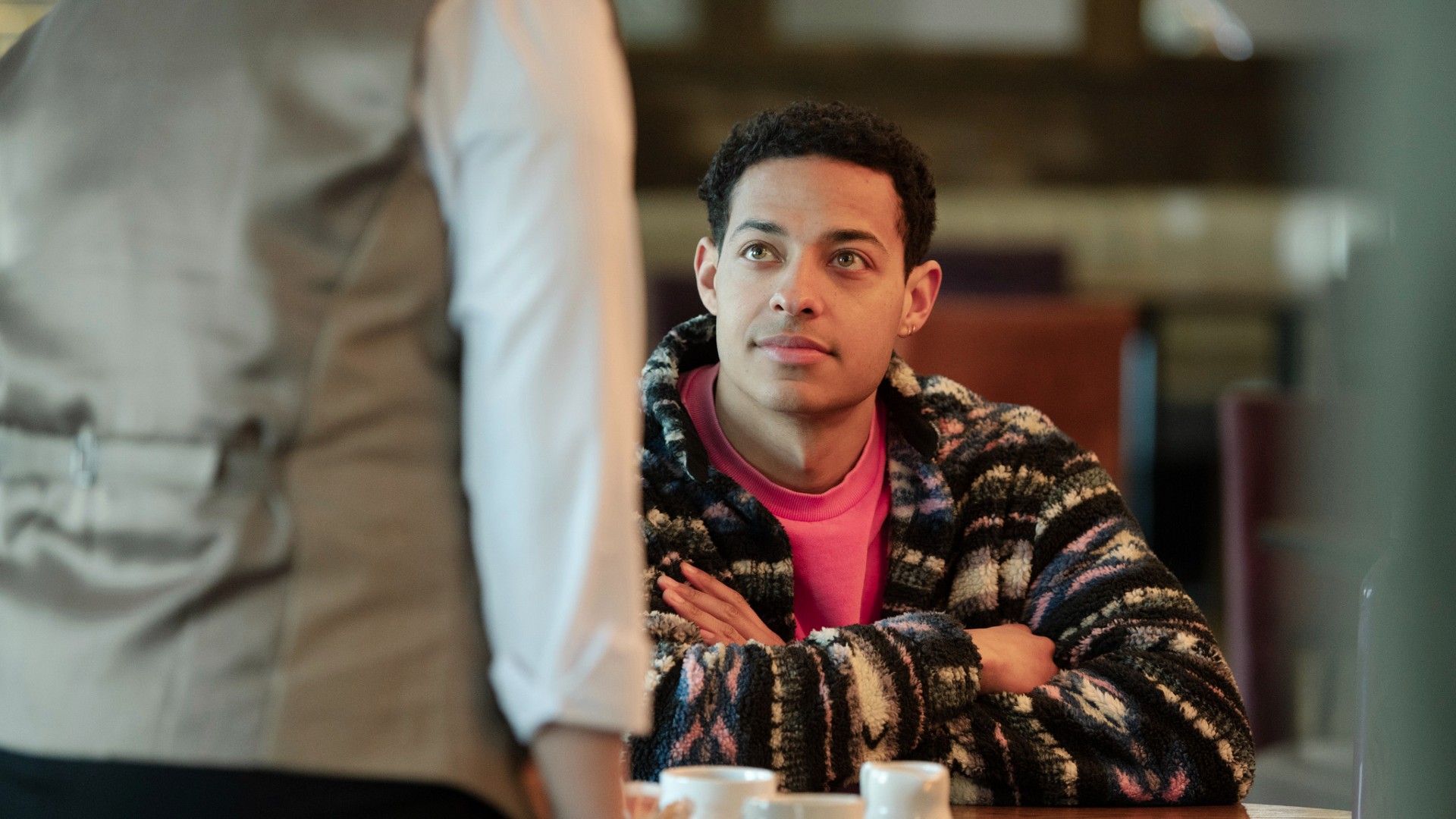
W&H: One thing that’s interesting about Leo is him challenging Nancy’s internalized misogyny. Do you think that reading this script and playing these characters helped you to reflect on any biases of your own?
EMMA THOMPSON: Oh, completely. It's not even internalized, the body hatred that women feel, that’s a huge part of this. That Leo is able to give Nancy her body back, how ironic is that. Extraordinary. [In] the conversations that I have with women, they will say, "I do actually actively hate my body. Actively."
Now, I have never liked my body. Ever. And I never will, because those pathways are so deeply carved in my brain. So this film, I hope, it’s a new neural pathway that you could go down. You could get to the end of it and go, "Oh, I could look at my body like that. I could inhabit it like that. I could feel joy in this place about which I am so vile, so hateful, so judgemental."
What is wrong with us? What a waste of our time. What a waste of our energy, our passion, our curiosity, our humanity, in this misogyny. It’s just awful. So that’s why it’s so important to us.
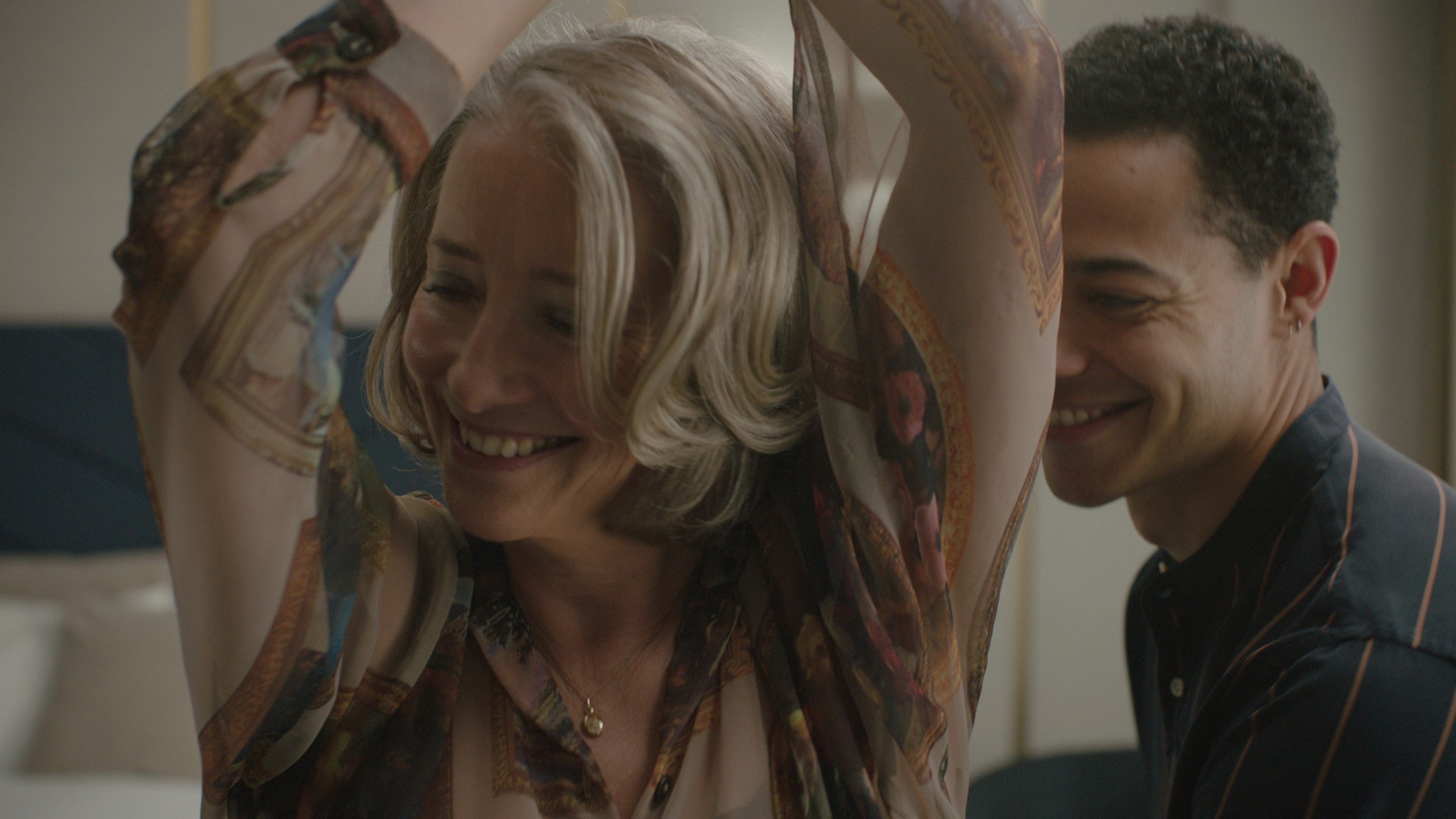
W&H: The shame around female pleasure is also a huge issue in the film. Do you think that having the normalization of sex work helps us, as women, think maybe we are deserving of pleasure?
DARYL MCCORMACK: I think the way in which we’re exposed to sex work in this film really shows the full capacity of what it can do.
And I don’t think even myself, as a young man, who’s aware of my sexuality, of my own intimate life, that I was even aware of the capacity that sex work can have for people.
I was lucky enough to speak to sex workers that could advocate in the sense of what this script was saying about sex work. It wasn’t like, "I don’t recognize myself in that, or I don’t recognize the sex work I do in that [the film]."
They very much saw that that was part of what their vocation of sex work was doing for people. It’s exciting to shine a light on that and hopefully encourage more examination of that because I think this is just one example of incredible liberation for both people as well. So God knows, if there was more support with that, you don’t know what the ends of that liberation could be.

Hailing from the lovely city of Dublin, Emma mainly covers the Royal Family and the entertainment world, as well as the occasional health and wellness feature. Always up for a good conversation, she has a passion for interviewing everyone from A-list celebrities to the local GP - or just about anyone who will chat to her, really.
Emma holds an MA in International Journalism from City, University of London, and a BA in English Literature from Trinity College Dublin.